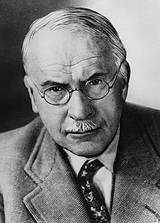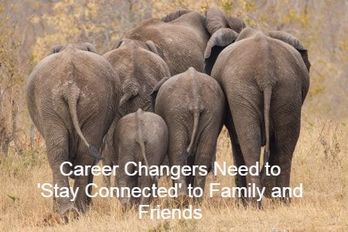 "Karen, an account manager in a software company complained to me that she’d grown tired of her role and found it unfulfilling. She wanted work that was more ‘meaningful’.“Trouble is,” she went on, “doing something more ‘meaningful’ isn’t going to pay the mortgage or enable me to support the kids through university, is it?" I've found it’s common for professionals in well-paid but unfulfilling roles to believe that a career switch to work that’s more ‘meaningful’ will cost them dear. However, I also know it doesn’t have to be so. What is ‘Meaningful’ Work? Findings from studies defining ‘meaningful’ work, point to concepts such as ‘the amount of significance people perceive to exist in their work ¹. There’s the idea of a ‘calling’ which has deep historical and religious roots and which might lead people to choosing a role within the church or a healthcare environment. Nowadays the phrase ‘calling’ is often more about an inner drive to do fulfilling or self-actualising work². There’s also the related concept of ‘meaning in life’³. Which suggests that work is meaningful not only when it is judged to be significant, but also when it is viewed as having a distinct purpose or point. Some argue that you don’t have to have ‘meaningful’ work, as long as you find meaning in other parts of your life e.g. through family and relationships, a hobby, using your creativity, or through your faith. The late Susan Jeffers, renowned author and psychotherapist, encouraged us to set the bar high. If your work isn’t ‘joyful’ she encourages us to ditch it. Ultimately, ‘meaningful work’ is a ‘career value’ which any individual will rank somewhere on a continuum from high to low, according to their own make-up. The Midlife Crisis and Your Career Your interest in your career may wane gradually over several years. Or, having been made redundant, you may experience a sudden realisation: ‘I can’t go back to doing that! Either way it can feel frightening when the career that may have paid you handsomely and have reinforced a positive sense of self no longer ‘fits’. Such experiences are consistent with what renowned psychotherapist and psychoanalyst Carl Jung labelled as the ‘midlife crisis’. Jung believed such an event to be driven by a ‘search for meaning’, and attributed it to the need to ‘individuate’ at midlife, self-actualise and develop further our unique selves. If you made your career choice in your early twenties, perhaps twenty years ago. And since then you’ve changed and grown, and the world has also changed; is it really surprising that you, your career and the world of work no longer fit together like freshly sawn jigsaw pieces? How to Get a Better Money-Meaning Balance in Your CareerThere’s no quick fix. However, by starting with these three strategies you’ll be on your way to a better balance of money and meaning in your career at midlife. 1.Update Your Understanding of YOU |
AuthorI believe that everyone should enjoy meaningful, satisfying and rewarding work - work that fires you up! I am fascinated by human potential and the life journeys people make to find work and careers where they can channel and develop their skills and talents in meaningful and satisfying ways. Archives
January 2022
Categories
All
|
Don't Settle For Your Default Future - CREATE the Future You Want!
Don't Settle for Your Default Future - Create the One You Want!
ExeCutive Coaching and Executive Career Coaching services |
Company |
|












 RSS Feed
RSS Feed